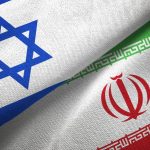Do we really have a national community and a political elite? What is the consensus’s scope within it? Is the existence of this group and this consensus crucial? And how does this relate to the national dialogue that is currently taking place in Egypt?
The first strand of answers to these questions appeared in a book that I reviewed the past year. The book is titled “Gambling on Development: Why Some Countries Win and Others Lose” and is written by English economist Stefan Dercon. Dercon asserts that there are two fundamental schools of thought on development, the first of which emphasizes the creation of “institutions” and the second calls for the adoption of a particular set of “policies”. However, the author contends that the existence of “consensus” among the elite serves as a more important launching pad for development than “strong institutions” or the adoption of a particular set of “policies”.
According to Dercon, the elite are “the people within the fabric of society, the economy, and politics who make decisions or can disproportionately influence them.” In other words, they are not just associated with the political establishment or the government apparatus but also with the business community, academia, civil society, labor leaders, and any other influential organizations, such as the press and opinion writers.
Dercon defines “consensus” as “a commitment by those with the power to shape politics, the economy, and society, striving for growth and development.” He asserts that “this shared commitment is what, above all, more successful countries appear to have in common, despite disagreements over important details, including those on economic policy-making.”
Dercon argues that a consensus among the elite is necessary for development to proceed. For countries to start unleashing economic growth and broad development, there needs to be a consensus among the elite about the directions to be taken and the actions that go along with them, and this consensus needs to be a shared, lasting, and credible political commitment that can endure through changes in government.
The second strand of answers to the questions I posed at the outset of this article, and the one most closely related to Egypt, is rooted in a classic book written by Harvard political science professor Nadav Safran and published in 1961. The book is titled “Egypt in Search of Political Community: An Analysis of the Intellectual and Political Evolution of Egypt, 1804-1952”.
The main argument of the author is that Egypt tried throughout the review period to establish a political bloc or consensus among its elite but was unsuccessful. The Muslim Brotherhood’s rise, which further polarized Egyptian society, was undoubtedly one of the major contributing factors.
This state of elite disagreement on fundamental issues, which impedes the formation of a national community or a fundamental path of Egyptian thought, persists to this day.
We now turn to Egypt’s National Dialogue (ND), which serves as a forum for conversation and debate among representatives of the political, party, and administrative spheres as well as intellectuals, media experts, artists, and other groups.
One advantage of the ND was that it brought different groups together in one space and allowed them to converse with one another about a variety of political, economic, and social issues while they were all seated in the same room. Despite the fact that a number of participants had nothing to contribute and that some of the discussions veered far from the main issues, the participants were able to reach consensus on numerous files.
The end of the ND sessions and the events anticipated over the coming months shouldn’t mean the end of dialogue. Instead, it must continue in various forms. However, any further dialogue must center on achieving agreement on key issues, such as how to define Egypt’s national identity, how to view political Islam (a segment of the elite is still polluted by the movement’s secretions despite the fact that their hands are not stained with blood), and how to advance economic development and social justice, among other matters pertaining to the main societal trends.
Such an open discussion will assist in identifying the scene’s elite in terms of their ability to contribute genuine ideas to the discussion. Furthermore, reaching an understanding on these important issues will help create the national community that Egypt needs in order to advance and achieve stability.
Creating an Egyptian national group represents an intellectual trend, emphasizing that it does not entail the formation of a monolithic bloc with identical political positions on all matters. It also does not imply the silencing of other voices outside the boundaries of the national group’s consensus. Instead, its objective is to shape a broad framework for Egyptian political discourse, often referred to as “the notion of Egypt.” Even within this context, space for differing viewpoints will persist. What’s crucial is that a clear distinction is made between this general framework and the other voices. This differentiation helps prevent confusion between the two and fosters a more informed and inclusive political landscape.
In a nutshell, the path to progress and sustainable development in Egypt lies in forging consensus among the country’s elite on major issues.












